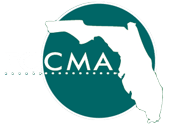1. Purpose
1.1. To require ethics training for all members within the profession.
1.1.1. Requirements are stated in Article VI, Section 1.1 of the Bylaws.
1.1.2. Exemptions are stated in Article VI, Section 1.2 of the Bylaws.
1.2. Reporting
1.2.1. Members are encouraged to report compliance as part of their annual membership renewal by either signing the dues statement when paying by check or by attesting when paying online.
1.2.1. Members may also report ethics training through the Association’s website.
1.3. Failure to comply
1.3.1. Members who fail to comply by the end of the fiscal year will receive notification of pending non-compliance and will be provided a grace period until February 1 to complete the training.
1.3.2. Failure to reply within the grace period will result in suspension of membership.
1.3.3. A suspended member is removed from the FCCMA database, does not receive any communication from FCCMA, and is not eligible to register for, attend, or participate in FCCMA events, unless that event will bring the member into compliance with the association’s ethics policy
1.3.4. Former members who left the Association while in a non-compliance status are required to come into compliance during the reapplication process.
2.1. To Educate members on relevant ethic situations.
3.1. To show that local government management persons have the strongest commitment to the ICMA Code of Ethics and to the laws of Florida.
4.1. To implement the requirements of Bylaws Article V, Subsection 1.1.1, which directs the Ethics Committee to review all ethics-related issues for the Association.
4.1.1. Investigation Process by the Ethics Committee
4.1.1.1. The Ethics Committee may be involved in the investigation of ethics complaints regarding the conduct of local government management professionals in three ways:
4.1.1.1.1. Referral of a complaint relating to an ICMA member to ICMA.
4.1.1.1.2. Responding to request from ICMA for fact-finding regarding a complaint being processed by ICMA.
4.1.1.1.3. Processing of a complaint regarding a member of the Association.
4.1.1.2. Referral of a complaint to ICMA
4.1.1.2.1. When the Committee chairperson receives a complaint or concern regarding a person who is a member of ICMA, whether or not that person is also a member of the Association, the chairperson shall refer the matter to ICMA for review and possible action.
4.1.1.2.2. All such referrals and any subsequent communication on the matter by the chairperson should be copied to the other Committee members and the Association’s Executive Director.
4.1.1.3. Fact-finding requested by ICMA
4.1.1.3.1. When ICMA contacts the Association to complete a fact-finding report regarding a member’s conduct, the chairperson will convene the Committee to appoint a subcommittee of no more than three (3) members (including the chairperson).
4.1.1.3.2. It is the responsibility of the subcommittee to respond to ICMA’s request for information.
4.1.1.3.3. Any subsequent communication on the matter by the chairperson should be copied to the other subcommittee members and the Association’s Executive Director.
4.1.1.4. Complaint against an Association member
4.1.1.4.1. A member of the Association who is not a member of ICMA may be accused of conduct violations that warrant an investigation.
4.1.1.4.2. Upon receipt of a complaint, the chairperson will convene the Committee to appoint a subcommittee of three (3) members to form a fact-finding subcommittee.
4.1.1.4.3. The fact-finding subcommittee will report back to the entire Committee with their findings.
4.1.1.4.4. The full Committee will then deliberate toward invoking any sanctions, if necessary. (See Membership Policy 4.9)
4.1.2. Other:
4.1.2.1. The Association shall support the work of the Committee in accordance with the Procedure for FCCMA Ethics Committee Investigation.
4.1.2.2. The Association shall support and defend, financially and otherwise, the members of the Committee should a lawsuit arise during or following an ethics investigation.
4.1.2.3. Association staff shall retain all Committee records for five (5) years.
4.1.2.4. The Executive Committee shall conduct a three-year review of the Ethics Policy.
FCCMA Ethics Policy
You are here:
- Home
- FCCMA Ethics Policy
